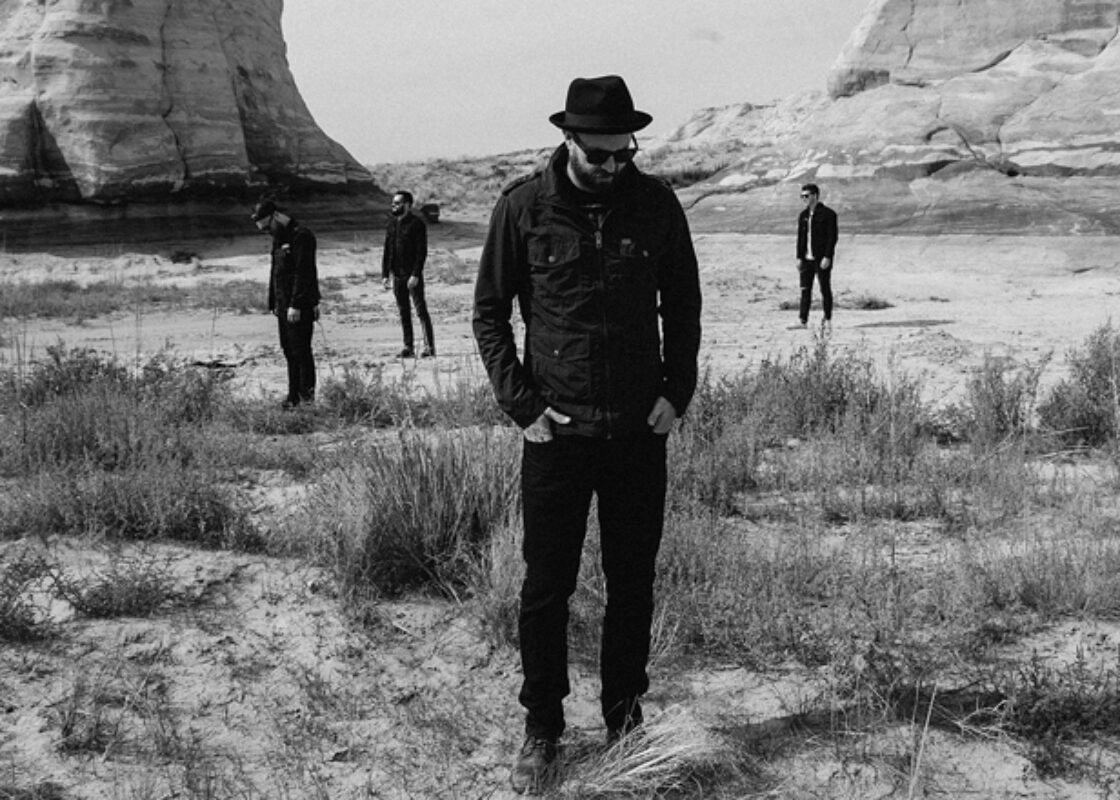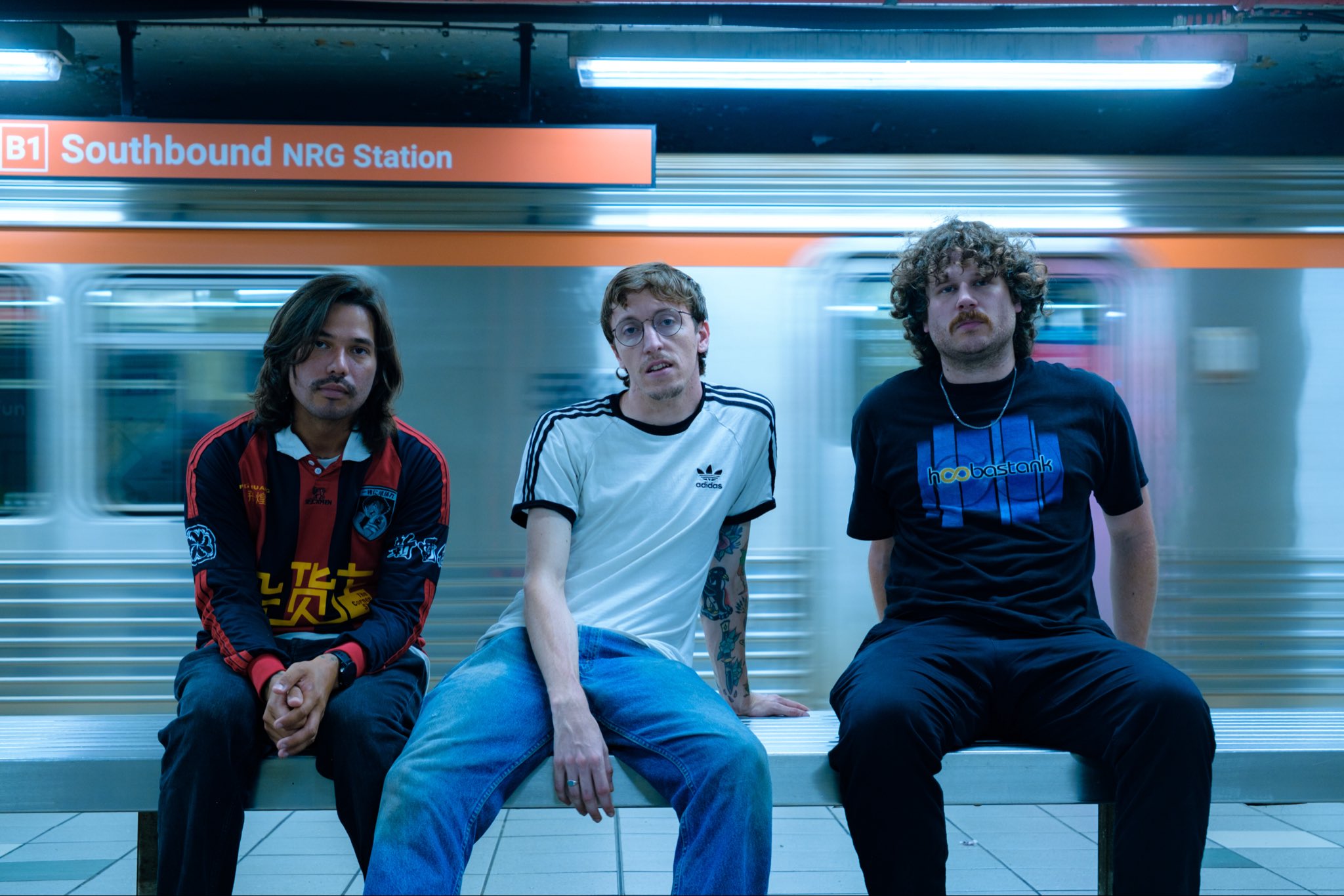Project 86 - Sound In The Signals Interview
I recently had the opportunity to interview Andrew Schwab of Project 86. We discussed thoughts about the early 2000s music scene, the writing and recording process for upcoming double album ‘OMNI’, lyrical inspiration, finding his voice on this album, and more. Check it out below.
You’ve had some great success and recognition over the years. Many found you in the early 2000s via Tooth & Nail and Atlantic Records. What are your thoughts about that time and that era of music?
I always refer to that era as the last “golden” era of the music industry. Remember, this was just before the advent of digital media (music) and social media, which consumed life as we knew it shortly thereafter. Back then, people still bought CDs and went to shows! When I think about it, I get very nostalgic, because it is now a time that is lost to history! If you wanted to discover new music you had to visit the record store (unless you had a music nerd friend). If you wanted to see a band, you had to buy a ticket! If you wanted to own the music, you had to buy the record! As an artist, there are obvious reasons why this era was amazing; there were far fewer bands, and in order to tell people about your show, you simply handed them a flyer.
I know I sound like an old dude…but I honestly miss all of this.
But the thing I miss the most is the mystique of that era (and the eras before it). You didn’t have access to much information about the artists you loved, so you had to use your imagination to fill in the blanks. There was no social media…
Once the digital space took over, the music industry basically collapsed, then became flooded with artists. Attention spans became shorter almost overnight, and you had to do 4x the work to produce ½ the results.
I am super thankful to have played music during that time. It was special, and we didn’t know what we had.
You’re set to self-release your double album ‘OMNI’ in two parts with part one coming out on March 24th. Can you tell us more about the writing process and the lyrical themes you explored?
The writing process involved quite a bit of travel and collaboration, as I definitely wanted to craft a specific sound for this release. To be honest, I had a hankering to take the sound of the band in a heavier direction for a very long time-really, since Drawing Black Lines was released. This time, I had to pull out every stop to assemble the right team to make that happen. All in all, I made seven or eight trips to everywhere from Nashville to Springfield to Ft. Smith to Temecula to bring it all together. I want to give a shout out to everyone who worked on part 1 the double album: Grayson Stewart, Matt Putman, Cory Brandan, Michael Palmquist, Darren King, Phil Farris, Beau Burchell, and Matt Marquez. What a fantastic group of all-stars.
Basically, the process involved me traveling to all these places and sitting down with everyone and communicating a singular idea for a dark, heavy, dramatic, sci-fi/horror-themed album. It was tedious at times, but what was crafted is special, in my opinion.
The lyrics are visual and narrative in nature, exploring a fictitious world in the not-so-distant future that projects forward our current reality, especially as it relates to technology. It explores the idea of transhumanism in a world where a singular “Big Tech” power dictates most of reality. What would happen if mankind invented a way to cheat death? That’s the question we try to wrestle with on this release.
You worked with producer Beau Burchell (Senses Fail, Saosin, The Bronx). How was this experience?
He is so easy to work with. Such a great hang…funny, chill, easy-going, and very talented! We laughed a ton and had some fantastic conversations. The “work” didn’t really feel like work. He really brought out the best in me as a vocalist, and did a great job mixing the record, as well. I hope our paths cross again soon and we get to make more music together!
Can you tell us more about the recording process? What came easiest in the process and what took more time?
The recording process itself was pretty quick. We tracked the instruments in Springfield, MO at Spire Audio, and man, was it cool to hear the demos come to life. There was more than one “Holy S***” moment (and many people in the studio said those words out loud, at different times). The record hits so much harder than what I even expected…which was the goal. We knew that people who were familiar with the band would be excited, and I personally couldn’t wait to see the reactions. The most common comment is, “Who is the guest vocalist?” Many people said this because I took a heavier approach with the vocals this time around; instead of my typical shout, I went more death metal. Many were surprised by this, but I actually have sung this way live for about a decade. Honestly, it feels like I finally found my voice on this album, after all this time. Better late than never, right?
The album has been described as a work of fiction, but that it is rooted in current events. What do you hope listeners take away from the album’s music and message?
I just want to try to scare people, to shake them up a bit. Maybe, just maybe, after listening to this release some might be more motivated to look closer at the things that are happening in the world around us right now. There is so much to be concerned about, and civilization, in many ways, is crumbling. What type of world will emerge? It may not look like OMNI, per se, but if we don’t take ownership of the future for our children, the picture of the place they inherit could be very bleak.
What can you tell us about ‘OMNI Part 2’ so far?
It is two EPs, actually…one that is an even more brutal sound than LP1, and one that is a more digital sound. I picture an equilateral triangle when I think of the music all together: LP1 is the main record and story (the “top” of the triangle), and each EP is a supporting corner, which gives influence and backstory. While LP1 tells the main narrative, LP2 will tell the origin story of the two main antagonists. How does a genius inventor form a tech company which conquers the world? How does a political/military megalomaniac come to align with said tech company to become its “face?” Musically, LP1 is the combination of the two influences or “sounds” on the EPs. BRUTAL and DIGITAL. I think when it’s all done, every type of P86 supporter will have their itches nice and scratched. ;)
This is set to be your final album. What does this album mean to you as musicians and individuals?
To be honest, we are still in the middle of making it all, so it’s difficult to have any real perspective. LP1 turned out better than I could have imagined. It’s a project where I am doing so many of the things I have always dreamed of doing….heavier sound, a fiction book, an animated film. In a sense, this is even a part 2 to Truthless Heroes…which is such an unfinished/unresolved chapter of the band in my mind. If it turns out the way I imagine, it will be an opus, for sure. When it’s all done, I am sure I will feel all sorts of things…right now I am just trying to give all I have to make certain it’s everything it should be!
Thanks for taking the time to answer the questions. Is there anything else that you’d like to add?
You can still pre-order the album on CD, Vinyl, Cassette, and more here: https://project-86-merch.myshopify.com/
Join our Patreon to get hundreds of hours of content, exclusive music, and so much more:
Follow Project 86:





No comments: